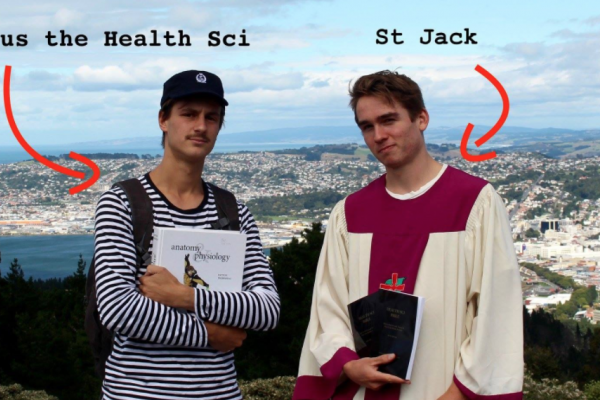A book on “How to Survive and Thrive in First Year Health Science” has caused controversy after lecturers apparently accused it of being “full of rubbish and mistakes”.
The Health Sci Bible was written by second-year students Marcus Ground and Jack Davies as a “summer project,” which they hoped would help new students navigate the year.
The book includes advice on everything from studying and note taking, UMAT and exam workshops to taking drugs and managing mental health.
But while the authors say they “tried to be honest,” some of their advice caught flack from the University. Marcus said that a senior professor in the Health Science faculty “reamed us out” over some of their more blunt advice – such as a list of classes students can afford to skip, what pre-readings are actually necessary, and which papers are worth more points.
In a lecture three weeks ago, staff working on the First Year Health Science programme told students that they felt that some of the advice in the book was inaccurate and misleading, and that First Year students could not rely on this book to successfully complete their course. They were advised that it was not necessary to purchase the book for use as a Health Science First Year guide, and that the staff provided all the materials they needed to do well in the programme.
Marcus and Jack removed the University of Otago logo from their Facebook page after they were asked to by the Uni.
According to one Health Sci student, a chemistry lecturer told a whole class not to buy the book because [and this is real] “it says 90% of the chemistry department is called Dave, but actually it’s only 60%, and it says we all like jazz, but actually only some of us like jazz”.
Marcus said, “we came from a good place, but we stood on their toes along the way”. They had sold “80-odd” copies of the book, and when Critic went to UBS to ask for a copy we were told that they had almost sold out of their 50 copies and only had one left.



